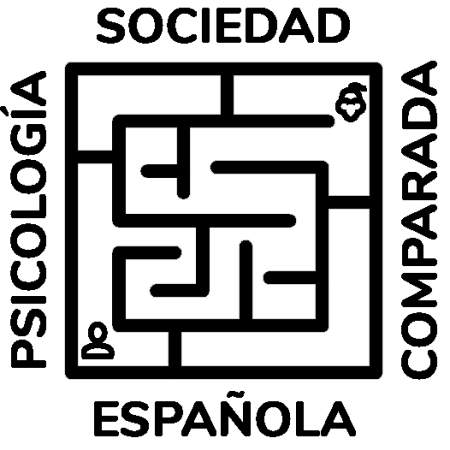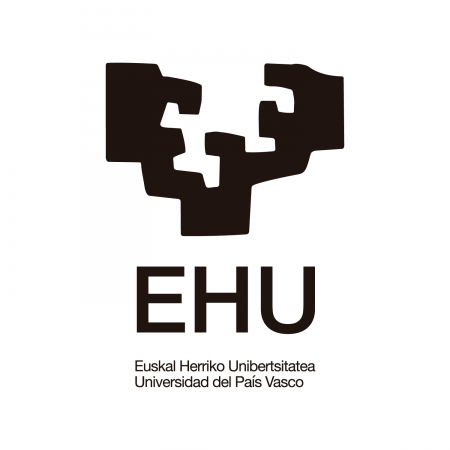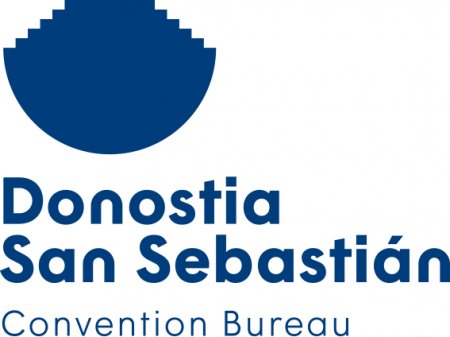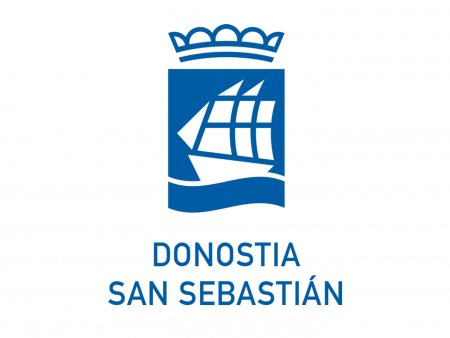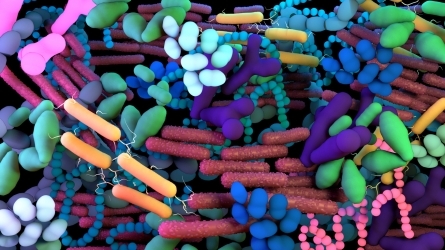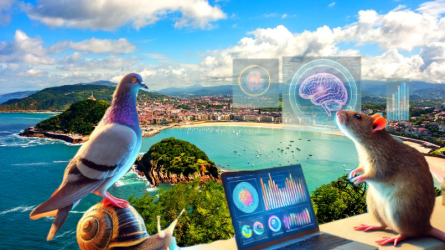
XXXV International Congress of the Spanish Society for Comparative Psychology (SEPC)
Description
Instagram X (The Congress pictures will be here)
NOTICE: The final program is now available. The abbreviated program (without abstracts) can be downloaded here: Final Abbreviated Program, and the complete program with abstracts here: Book of Abstracts, or from the Program section on the left. For easy, direct, and interactive access to the abbreviated program on your phone or tablet, use this link: Interactive Program or the QR Code.
The 35th International Congress of the Spanish Society for Comparative Psychology (SEPC) continues the tradition of being one of the main European meetings for professionals conducting cutting-edge research on cognition in humans and animals. This event serves as a platform to present, discuss, and explore the most recent international advances, using innovative techniques in topics that include (but are not limited to) classical and instrumental conditioning, memory, attention, motivation, spatial learning, and the neuroscience underlying these processes. The meeting fosters the exchange of ideas and facilitates the development and strengthening of collaborative research initiatives at both national and international levels.
The Congress will feature keynote lectures by leading figures in Learning Theory and Neuroscience, including Nathan Holmes (Scientia Associate Professor in the School of Psychology at the University of New South Wales, Australia), Milagros Gallo (Professor in the Department of Psychobiology at the University of Granada), and Laura Corbitt (Associate Professor at the University of Toronto).
We will also host an Expert Symposium to identify and discuss current perspectives on the most relevant phenomena in Associative Learning and Comparative Psychology in general, with the participation of Andy Delamater (Professor of Psychology and Neuroscience at Brooklyn College and the Graduate Center, City University of New York), Peter Balsam (Professor of Psychology at Barnard College and Columbia University), and the aforementioned Nathan Holmes and Laura Corbitt.
See the Speakers page on the UIK website for more information.
SUBMISSION OF COMMUNICATIONS AND POSTERS
Submissions can be made through the link at the end of this paragraph (Submission of Communications and Posters). The submission deadline is July 10. For oral presentations, priority will be given to communications presenting completed experimental work rather than ongoing studies. Posters should follow a reasonable standard size SUSMISSION OF COMMUNICATIONS AND POSTERS
If you wish to propose a session on a specific topic (e.g., a symposium), we will include it as a one-hour Focus Session. Each session must include four (4) presentations, following the guidelines of the submission form. To propose a presentation as part of a focal session, indicate FOCUS SESSION _______________ at the beginning of the abstract and specify the name of the session in the corresponding field. Questions and discussion will be reserved for the final 20 minutes of the session. All authors may be present at a common table during the session.
REGISTRATION
Registration is available on the right (Register). The registration fee is €390 until July 10, and includes meals on all days of the meeting and the three social events. After July 10 and until the start of the Congress, the fee will be €490.
ACCOMMODATION
We strongly recommend booking your accommodation as early as possible. The congress will take place in San Sebastián, a city with a vibrant cultural and touristic life throughout the year, hosting numerous events such as congresses, festivals, and concerts. This means demand for accommodation is high. If you prefer more affordable options than those available in the city, note that nearby towns are well connected by public transport (such as Errenteria, Pasaia, Lasarte-Oria, or Hernani), where you can also find reasonably priced lodging. Accommodation search: San Sebastián Tourism – Where to Sleep
Recommended accommodations near the Congress venue:
- Hotel Barceló Costa Vasca
- Koisi Hostel
- Uma Suites Ondarreta
- Sercotel Codina
- Suites Satori
- La Sirena Youth Hostel
- Hotel Avenida
- Hotel NH
- Colegio Mayor Olarain (student residence)
- Residencia Universitaria Manuel Agud Querol
For assistance in finding accommodation of any kind —across all budgets and categories— we recommend contacting:
Basque Destination
Email: info@basquedestination.com
Phone: +34 943 326 306
Contact person: Joseba
Important: Congress attendees will have free access to Dbus (San Sebastián’s city bus service) by showing the back of their Congress ID card. Free access will not be available in surrounding towns.
Scientific Committee
Antonio Álvarez (University of Barcelona)
Armando Machado (University of Aveiro)
Carmen Torres (University of Jaen)
Charlotte Bonardi (University of Nottingham)
Concepción Paredes-Olay (University of Jaen)
Dominic Dwyer (Cardiff University)
Eugenia Marín (University of the Basque Country)
Federico Sanabria (Arizona State University)
Felisa González (University of Granada)
Fernando Gamiz (University of Granada)
Fernando Rodríguez (University of the Basque Country)
Francisco J. López Gutiérrez (University of Malaga)
Gabriel Rodríguez (University of the Basque Country)
Gabriela Chotro (University of the Basque Country)
Geoffrey Hall (University of York)
Ignacio Loy (University of Oviedo)
Isabel de Brugada (University of Granada)
J. Alejandro Aristazabal (Konrad Lorenz University Foundation)
James Byron Nelson (University of the Basque Country)
José E. Callejas Aguilera (University of Jaen)
José Prados (University of Derby)
Juan Manuel Rosas (University of Jaen)
Karen Hollis (Mount Holyoke College)
L. Gonzalo de la Casa (University of Sevilla)
María Carmen Sanjuan (University of the Basque Country)
Marta Gil (University of Granada)
Mauricio Papini (Texas Christian University)
Miguel Angel Vadillo (Autonomous University of Madrid)
Mirari Gaztañaga (University of the Basque Country)
Patricia Gasalla (Cardiff University)
Pilar Flores (University of Almeria)
Ricardo Pellón (National University of Distance Education)
Robert Boakes (University of Sydney)
Robert Honey (Cardiff University)
Unai Liberal (University of the Basque Country)
Organizing Committee
University of the Basque Country (UPV/EHU):
President: María del Carmen Sanjuán
Secretary: Naiara Arriola
Members:
Gabriel Rodríguez
James Byron Nelson
Gabriela Chotro
Mirari Gaztañaga
Unai Liberal
Fernando Rodríguez
Eugenia Marín
Borja Nevado
Estíbaliz Muñoz
Ixone Badiola
Nataliya Dianova
Paula Vicente
Yeray Mera
On the day before the Congress, a symposium entitled "Comparative Psychology: Understanding Ourselves Through Other Species" will be held, open to the general public.
This event will explore the fascinating connections between the animal and human mind. It will be an opportunity to learn, reflect, and challenge our ideas about behavior and human psychological processes.
Date: Tuesday, September 30, 2025
Time: 16:00 h
Place: Aula Magna, Faculty of Psychology, UPV/EHU
Free admission until full capacity is reached.
SYMPOSIUM: Comparative Psychology: Understanding Ourselves Through Other Species
Objectives
The first objective of the meeting is to disseminate current leading-edge advances in experimental research on cognition in humans and animals. The dissemination will take place through three invited plenary speakers and a symposium regarding opinions of the most important and upcoming issues related to comparative cognition, along with multiple oral and poster presentations submitted by members of the organization.
The second objective of the meeting is to foster collaborative relationships between different laboratories from across the world. This objective is facilitated by planned social activities through which persons with strong common interests, identified during the meeting presentations, can socialize and refine common research questions.
Activity directed to
- University student
- Teachers
- Professionals
Directors

María del Carmen Sanjuán Artegain
UPV/EHU
I hold a PhD in Psychology from the University of the Basque Country (UPV/EHU), where I work as an Associate Professor in the Department of Basic Psychological Processes and their Development. My career combines teaching, research, and educational innovation, with over 20 years of experience in university education and the development of competitive scientific projects. I am a member of the consolidated research group Learning and Cognition. My research focuses on the study of learning, perception, and attention processes, with particular interest in how we learn to differentiate similar stimuli through mere exposure—especially after experiencing only one of them—and how context and prior experience influence the acquisition and extinction of associations. I teach courses on cognitive processes, integrating active methodologies to promote practical and autonomous student learning and the development of their scientific competencies. I also teach in the research master’s program at the Faculty of Psychology and have coordinated several educational innovation projects.

Naiara Arriola Garicano
UPV/EHU
Degree in Psychology and PhD from the University of the Basque Country (UPV/EHU), I am an associate professor in the Department of Basic Psychological Processes and their Development where I teach subjects on cognitive processes in different Degrees. I belong to the consolidated research group “Learning and Cognition” which develops competitive scientific projects in the field of basic processes. My research work within this group focuses on transferring the knowledge acquired in the learning of basic processes to a more applied framework also collaborating with the Attention Deficit and Hyperactivity Disorders Association
Speakers

Peter Balsam
Barnard College/Columbia University
Peter Balsam is a Professor of Psychology at Barnard College and Columbia University. He is perhaps best known by members in the society for his fundamental research in timing (C/T) and associative learning. More generally, his work is aimed at understanding how animals and humans perceive and utilize temporal information to guide behavior. He has also contributed to our understanding of the role of context in learning and performance. More recently he has investigated neural mechanisms of how dopamine influences reward and motivational states. He has served on the editorial boards of the Journal of Experimental Psychology: Animal Learning and Cognition, Animal Learning and Behavior and the Journal of the Experimental Analysis of Behavior. He has also edited two books: Context and Learning (with A. Tomie) and the Behavioral Neuroscience of Motivation (with E. Simpson). His work aims to understand basic cognitive and behavioral processes so they can be translated into new strategies for diagnosis and treatment of psychiatric disorders.

Laura Corbit
University of Toronto
Laura Corbit is an assistant professor at the University of Toronto who studies the behavioral and neural control of instrumental and reward-seeking behaviors. She examines how different brain circuits contribute to distinct forms of learning (e.g., action-based goal direction vs. habit) and how experiences like drug exposure or diet alter learning and behavioral control. Her work on prediction-error based learning uses state-of-the-art optogenetics, fiber photometry, and behavioral analyses, to examine how locus coeruleus neurons contribute, showing that noradrenaline may play a role in specific aspects of prediction error and could offer insights into treating learning disabilities. She has also studied how an obesogenic diet impairs goal-directed control and may promote habit-like behavior.
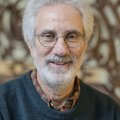
Andy Delamater
Dr. Delamater is a Professor of Psychology and Neuroscience at Brooklyn College and the Graduate Center of the City University of New York (CUNY). His area of expertise is the study of associative learning. In addition to his recent textbook on the subject, The Essentials of Conditioning and Learning, co-authored with Michael Domjan, he has served as the Editor of Journal of Experimental Psychology: Animal Learning and Cognition and President of both the Eastern Psychological Association and the Pavlovian Society. His grant-funded research focuses on the psychological and neurobiological foundations of associative learning, with approaches at computational, behavioral, and neural circuit levels. He employs sophisticated behavioral methods, including reward devaluation, differential outcome, peak timing, and Pavlovian-to-instrumental transfer tasks, alongside neurobiological techniques, to identify the neural representations and pathways responsible for encoding distinct sensory and temporal features of reward, to understand the underlying mechanisms of behavioral sequence learning, goal-directed actions and habits, and, more generally, to understand the mechanisms of neuroplasticity.

Milagros Gallo Torre
Universidad de Granada
Milagros Gallo is Full Professor at the Department of Psychobiology of the University of Granada (Spain) and coordinator of the Research Group "Neuroplasticity and Learning (NEPLE)" http://neplegroup.com/. The research team brings together psychobiologists and learning psychologists performing interdisciplinary research in human and animal models in order to fully understand the mechanisms and processes involved in learning and memory. She has been former director of the Institute of Neurosciences “Federico Olóriz” (UGR), president of the European Chemoreception Research Organization (ECRO) and member of several scientific societies. She contributes to the scientific endeavor participating in scientific congresses, ethics and expert committees of Spanish and foreign agencies as well as being editor of scientific journals and supervising young talented researchers. Her research is focused on a developmental approach in rodent models, with special interest in adolescence and aging. As principal investigator of several consecutive projects she combines chemogenetics, immunohistochemisty, neuroimaging, and epigenetics to study how the individual brain is shaped by neural plasticity along the life.

Nathan Holmes
Nathan Holmes is a Scientia Associate Professor in the School of Psychology at the University of New South Wales (Australia) and recipient of an Australian Research Council Future Fellowship and an American Psychological Association Early Career Award for Distinguished Contributions to Research in Psychology. Nathan is interested in how the mammalian brain processes different types of information; and how motivational states, like fear, affect that processing. Specifically, he examines how fear influences the processing of innocuous information (e.g., the relation between a sound and a light), how fear spreads across a network of linked memories, and how an established fear memory is updated to include new information. The aim of his research is to develop a theory of how fear influences information processing in the brain, with a particular focus on cells and circuits of the medial temporal lobe.
Registration fees
GRANTS:
Grants will be awarded to cover registration fee and meals. The opening cocktail reception, dinner at Cider house, and gala dinner are not included. Grants are for students under 30 years of age who present an oral presentation or poster at the conference. Authorship is not sufficient; it is essential requirement that the applicant is the attendee who will present the presentation. Grants will be awarded based on budget availability.
To apply for the grant, please submit:
- Copy of ID
- A copy of the current registration in an undergraduate, master's, or doctoral program.
- A Sworn statement stating that you have no other source of funding to attend the Conference for the same purpose.
Applications should be sent by email to: SEPC2025dudas@gmail.com
Application deadline: May 31. The resolution will be received the week of June 2 to 8.
| Registration | Until 10-07-2025 | Until 26-09-2025 |
|---|---|---|
| 390,00 EUR | 490,00 EUR | |
| 0 EUR | 0 EUR |
Venue
Miramar Palace
Pº de Miraconcha nº 48. Donostia / San Sebastián
Gipuzkoa
Miramar Palace
Pº de Miraconcha nº 48. Donostia / San Sebastián
Gipuzkoa
Sustainable development goals
Agenda 2030 is the new international development agenda approved in September 2015 by the United Nations. This agenda aims to be an instrument to favour sustainable human development all over the planet, and its main pillars are the eradication of poverty, a reduction in equality and vulnerability and fostering sustainability. It is a unique opportunity to transform the world up to 2030 and guarantee human rights for all.

4 - Quality education
Guarantee quality education that is inclusive and equitable and foster opportunities for lifelong learning for everyone. Key issues: free-of-charge, equitable and quality education, access to higher education and training on an equal basis, education for sustainable development, suitable education centres for persons with disabilities, and safe, non-violent and efficient learning environments.
More information
